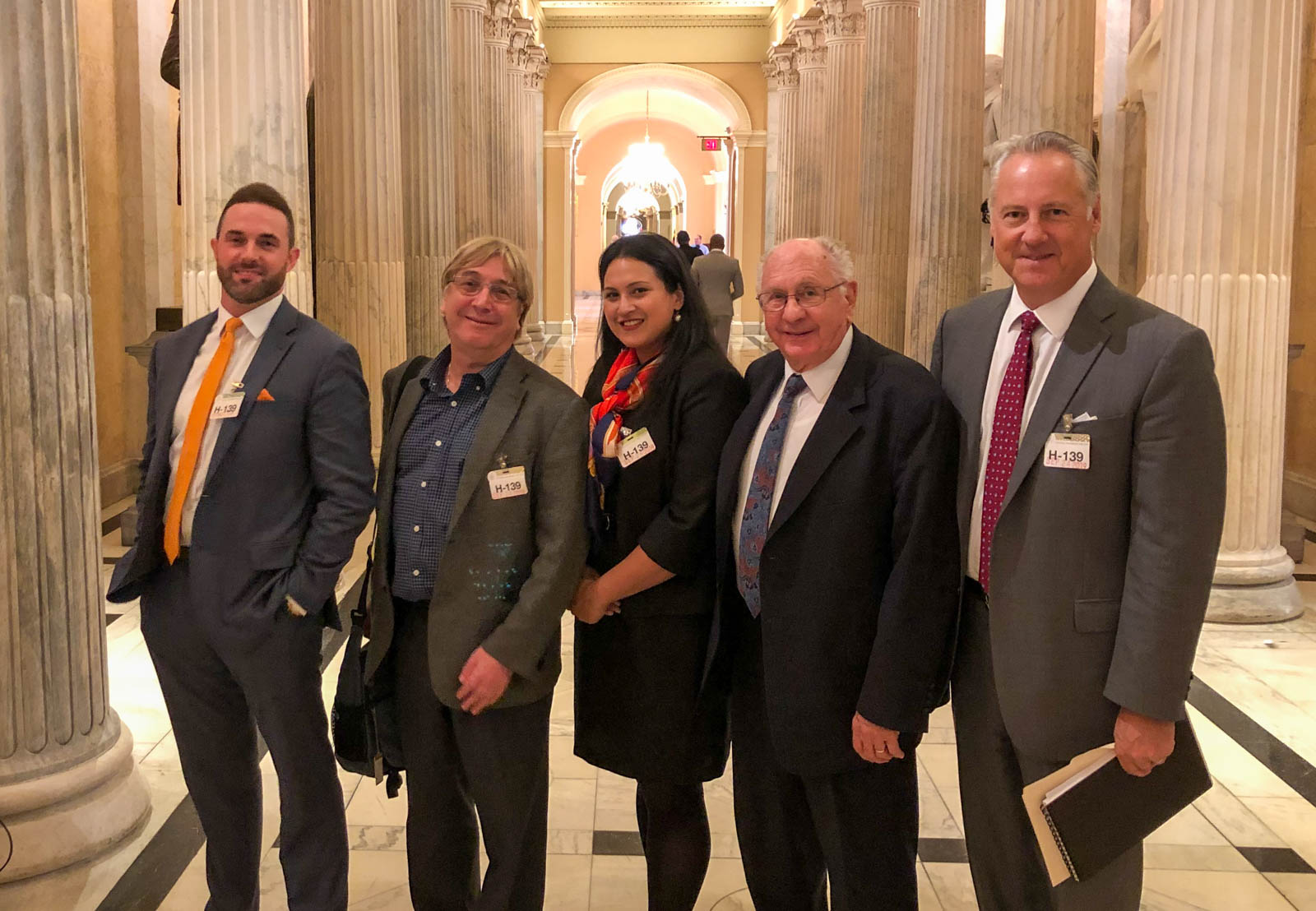|
On September 24, 2019, NSSPI Faculty Fellow and Assistant Professor of Nuclear Engineering Dr. Shaheen Dewji participated in an event organized by the American Nuclear Society (ANS) in which experts were called on to discuss resurrecting the Department of Energy (DOE) low-dose radiation research program with congressional staffers. Dr. Dewji joined ANS Washington Representative Craig Piercy, John Starkey of ANS, Dr. David J. Brenner of Columbia University, and Dr. Antone L Brooks, research professor emeritus at Washington State University and one of the former lead scientists of the low-dose radiation research program from 1999-2008 to argue the importance of the program and call for its resurrection.

Mr. Starkey, Dr. Brenner, Dr. Dewji, Dr. Brooks, and Mr. Piercy in Washington, D.C. to support the resurrecting of the DOE low-dose radiation research program.
The ANS event also included a webinar open to ANS members titled, “Low-dose radiation: What is the science telling us?” The webinar was a discussion by the group of experts aimed at increasing awareness of the program through discussing the health benefits and highlighting low-dose research and development that the continuation of the program could make possible.
The DOE terminated the low-dose radiation research Program in 2016, but the program has continued to garner support not only from members of the scientific community, but also from politicians on both sides of the aisle. In May, the House Appropriations Committee approved a request by the DOE for $10M in funding to support the restart of the program. On October 18, a bipartisan group of Members of the House Science, Space, and Technology Committee, which included Representatives Bill Posey (R-FL), Dan Lipinski (D-IL), Randy Weber (R-TX), and Brian Babin (R-TX) introduced the “Low-Dose Radiation Research Act of 2019.” If approved by the full Congress, the funding would allow for new research in this area that could incorporate the scientific advances made since the suspension of the program.
While low-dose radiation research has many potential applications for health and safety, the importance of this work for nuclear security lies in the realm of emergency preparedness for and response to radiological or nuclear terrorism events.
“Emergency response guidance and regulation, especially in the purview of emergency preparedness and response, requires an accurate evaluation of the detrimental effects following radiological or nuclear terrorism events involving exposures to members of the public, first responders, or military personnel,” argued Dr. Dewji. Moreover, she stated, “The work proposed under a renewed low-dose program is foundational in evaluating radiation risk informing post-event decision making.”
This work could help decision makers evaluate whether shelter-in-place measures or evacuation is more appropriate. In addition, the impact of the work further informs the development of radiation countermeasures following radiological or nuclear events involving exposures from improvised nuclear devices or nuclear weapons, or uptakes from radiological dispersal devices of improvised nuclear device or nuclear weapons fallout.

